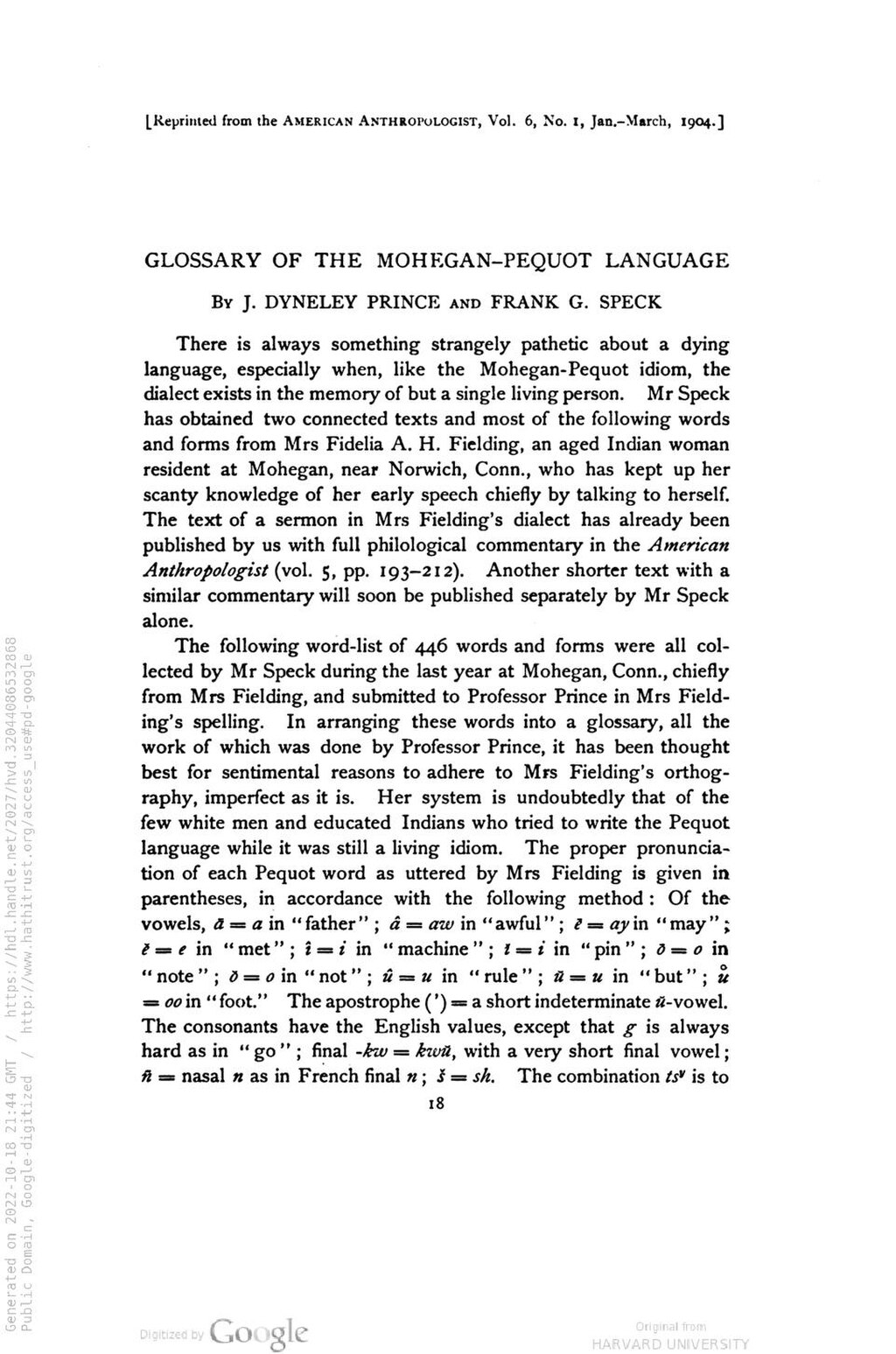[Reprinted from the American Anthropologist, Vol. 6, No. 1, Jan.–March, 1904.]
GLOSSARY OF THE MOHEGAN–PEQUOT LANGUAGE
By J. DYNELEY PRINCE and FRANK G. SPECK
There is always something strangely pathetic about a dying language, especially when, like the Mohegan-Pequot idiom, the dialect exists in the memory of but a single living person. Mr Speck has obtained two connected texts and most of the following words and forms from Mrs Fidelia A. H. Fielding, an aged Indian woman resident at Mohegan, near Norwich, Conn., who has kept up her scanty knowledge of her early speech chiefly by talking to herself. The text of a sermon in Mrs Fielding’s dialect has already been published by us with full philological commentary in the American Anthropologist (vol. 5, pp. 193–212). Another shorter text with a similar commentary will soon be published separately by Mr Speck alone.
The following word-list of 446 words and forms were all collected by Mr Speck during the last year at Mohegan, Conn., chiefly from Mrs Fielding, and submitted to Professor Prince in Mrs Fielding’s spelling. In arranging these words into a glossary, all the work of which was done by Professor Prince, it has been thought best for sentimental reasons to adhere to Mrs Fielding’s orthography, imperfect as it is. Her system is undoubtedly that of the few white men and educated Indians who tried to write the Pequot language while it was still a living idiom. The proper pronunciation of each Pequot word as uttered by Mrs Fielding is given in parentheses, in accordance with the following method: Of the vowels, ā = a in “father”; â = aw in “awful”; ē = ay in “may”; ĕ = e in “met”; î = i in “machine”; ĭ = i in “pin”; ō = o in “note”; ŏ = o in “not”; û = u in “rule”; ŭ = u in “but”; ů = oo in “foot.” The apostrophe (’) = a short indeterminate ŭ-vowel. The consonants have the English values, except that g is always hard as in “go’’; final -kw = kwŭ, with a very short final vowel; ñ = nasal n as in French final n; š = sh. The combination tsy is to
